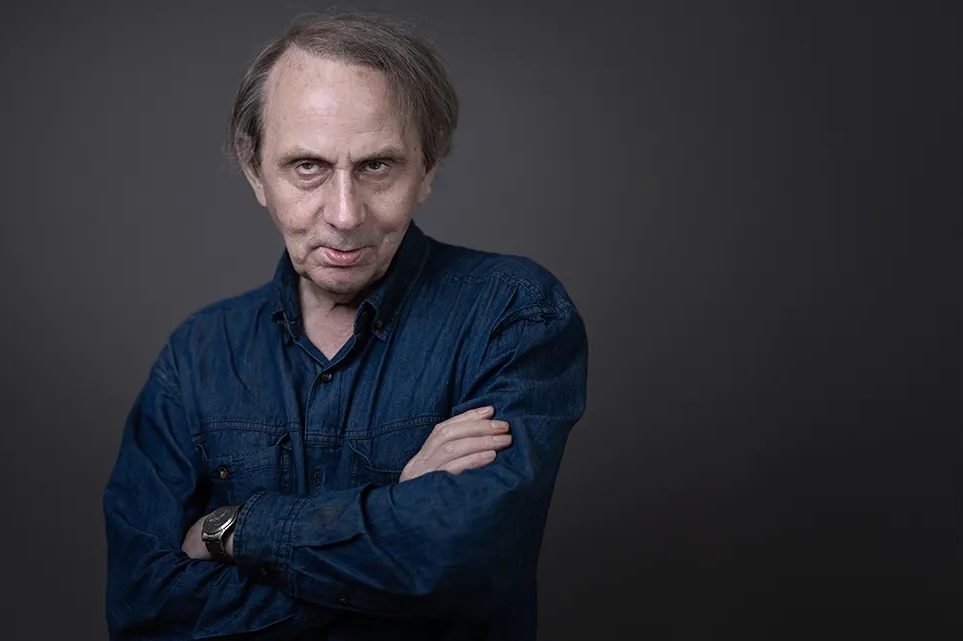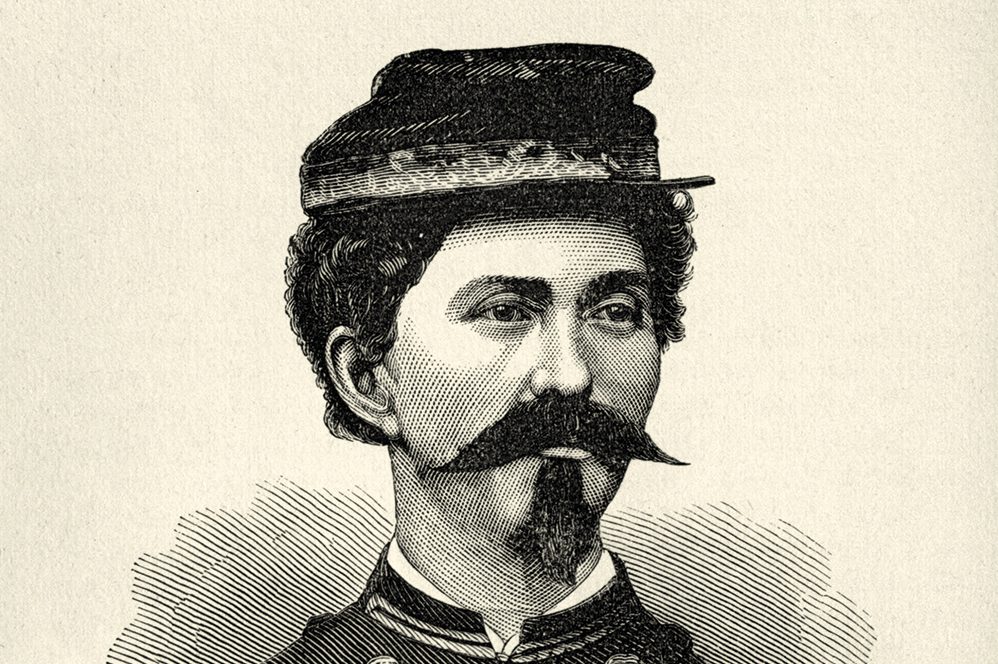Michel Houellebecq’s ninth and longest novel, anéantir, was published in France at the beginning of January 2022 with an initial print run of 300,000 copies. Translations into Italian, German and Spanish appeared a few weeks later. Only now, though, is it available in English, a belatedness all the more regrettable because, like several of Houellebecq’s novels, it is set a little in the future (Submission, for example, foreseeing the Islamization of France, was published in 2015 and set in 2022).
Houellebecq has always maintained an absolute faith that love alone saves
Annihilation looks forward to the presidential election of 2027, correctly assuming that Emmanuel Macron, never named but clearly referenced, would have won a second term in 2022. It’s imagined that he will then be maneuvering to install a puppet president for a term, while he serves as prime minister, so he can return to the presidency afterwards, Putin-style. The novel’s protagonist, Paul Raison, is caught up in this project as the special advisor to the brilliant finance minister Bruno Juge (evidently Bruno Le Maire, Houellebecq’s friend).
All this speculation has been rendered implausible by the political convulsions in France this year. The main subplot, about cabbalistic cyber-terrorism by deep ecologists, remains equally improbable and adventitious, awkwardly linked to Paul by Juge being targeted and Paul’s father having been a former head of the DGSI intelligence agency before retirement.
So what remains? A compassionate, deeply affecting novel about love and death and the way we treat the dying. That this is the real subject of the story emerges ever more clearly as it progresses. The election passes uneventfully and the cyber-terrorism plot is pretty much forgotten by the end.
This is a text that could have been improved by revision or simple abridgment, a fact that perhaps Houellebecq tacitly acknowledges in an end-note, thanking the doctors who helped him on medical matters and urging other French writers to ask people about their work more, before abruptly concluding: “It’s time for me to stop.”
Paul, nearing fifty as we meet him, is at a loss in life, despite his professional success. He still shares a place with his wife of twenty-wife years, Prudence, an inspector of finances and fellow énarque, but, childless, they follow lonely separate lives. Then he gets a message that his father, Édouard, retired to the family home in a remote village in Beaujolais, has had a severe stroke and is in a coma, possibly reduced to a persistent vegetative state.
Paul travels down at once to be with him, joining there his devout Catholic sister, Cécile, and his father’s devoted, younger companion, Madeleine. The novel tracks closely the treatment Édouard receives, in a general hospital and then in a specialist unit for the minimally conscious, initially excellent but soon degraded by government cuts and callous managers. With their father unable to express his wishes, the family kidnap him to bring him home. There, lovingly cared for, Édouard seems at peace:
Paul had a sense that his father was happy, or at least that the logistical arrangements that had been put in place enabled him to have as pleasant a life as possible, and all life, he thought, is more or less the end of life.
Brought together by this crisis, Paul and Prudence (whose own father is similarly afflicted) turn to each other and, tentatively, gradually, become lovers again. Paul, though, has been having dental troubles. Seeking treatment at last, he discovers that he has oral cancer and not long to live. Annihilation’s last 100 pages are an extremely touching, tender account of Paul facing up to annihilation but no longer alone.
For those dismissive of Houellebecq as merely scabrous and reprehensible, the themes of this novel may be surprising. Yet he has long expressed his detestation of euthanasia and campaigned about the care of the dying. For all his salacity, he has maintained an absolute faith that love alone saves. He always wanted, he once said, to write scenes that were heartbreaking: “That’s what I admire most in literature, the ability to make you weep.” Here they are, those scenes.
Annihilation is far from faultless (it includes long descriptions of more than a dozen of Paul’s dreams — never a good narrative move). Houellebecq’s paratactic, comma-heavy style adopts here can read as a bit disorganized in English (and there are some surprising misprisions in the translation, too). Yet it’s a novel of massive ambition, worthy of Balzac, deeply embedded in the reality of France, telling truths that come, in the end, straight from Pascal. We can only hope that it is not Houellebecq’s swan song, after all.
This article was originally published in The Spectator’s UK magazine. Subscribe to the World edition here.

























